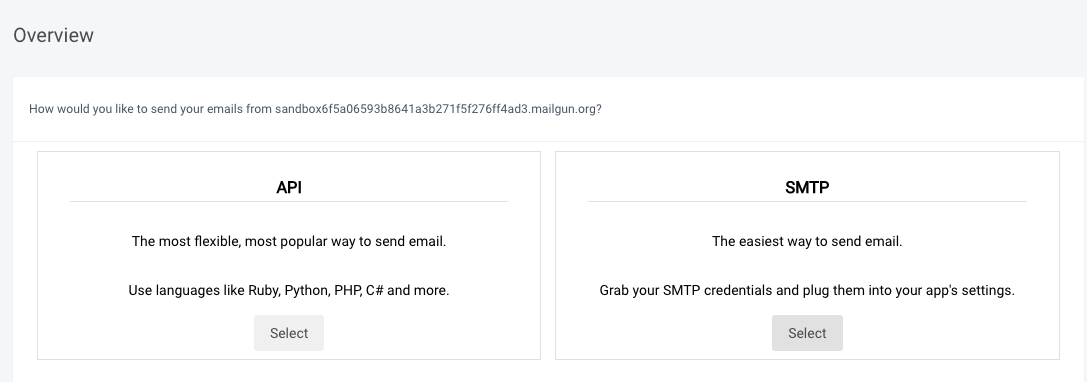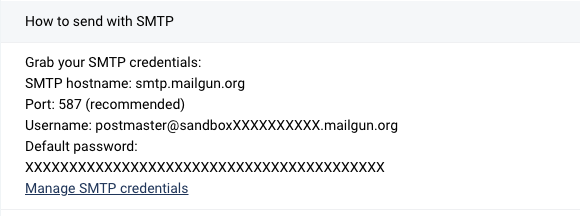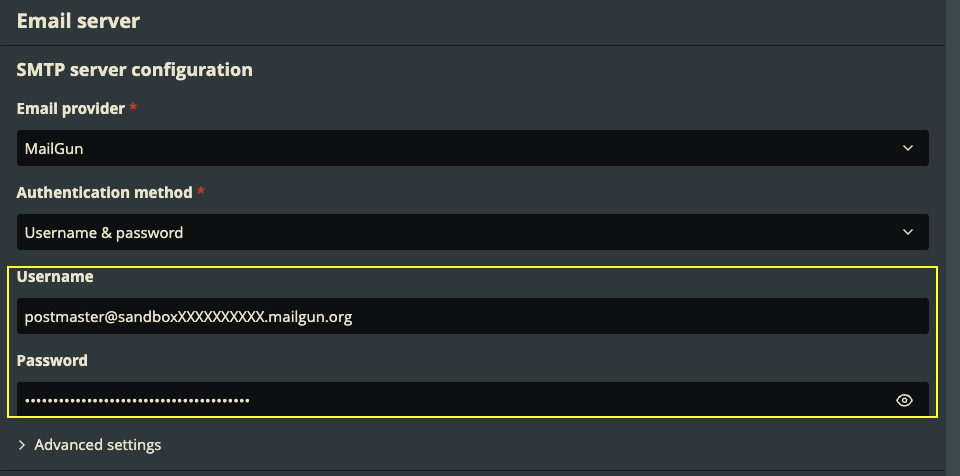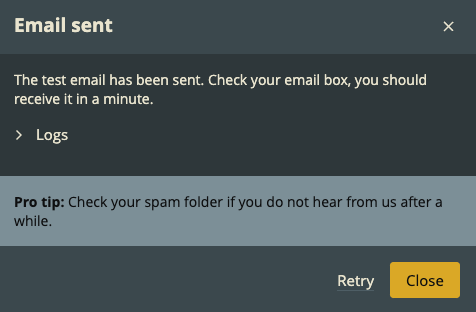Configure Email authentication with Mailgun
Introduction
This page is dedicated to providing you with valuable resources to help you configure an authentication method based on the email provider you choose. Authentication is an essential security measure that verifies the identity of users and ensures that only authorized individuals have access to sensitive information.
In order to follow this guide, you will need an email provider. If you want to know how to configure your email provider, please follow this link.
Mailgun
- Administration panel
When you are using Mailgun, once logged in, you will be automatically redirected to the administration panel dashboard.

You will need to navigate to Sending > Overview.
- Create your SMTP Credentials
On this page you will find the SMTP hostname, port, username, and default password that you will need to set up SMTP authentication for your email sending requests.
Mailgun provides a dedicated page for managing your SMTP credentials. To access this page, you can click on the "SMTP Credentials" link located in the "SMTP" section. Here you can create new SMTP credentials by clicking on the "Add New SMTP Credential" button.

When you create new SMTP credentials on Mailgun, the platform will generate a unique password consisting of 50 random characters. You can use this password to authenticate your email sending requests through the Mailgun SMTP servers.
It's important to keep your Mailgun SMTP credentials secure, as they can be used to send emails from your account. You should never share your password or username with anyone, and you should take steps to protect your account from unauthorized access.
- Authentication on Passbolt GUI
On your Passbolt instance, you can navigate to Administration > Email server.

You will need to fill in your smtp credentials to match your authentication method (username & password).
- Test your configuration
Before saving your configuration, you will need to test it in order to avoid any issues. it should pass and give the results shown below.

- Save your configuration
If everything went as expected, do not forget to save your configuration and "Success: The SMTP settings have been saved successfully" should appear.